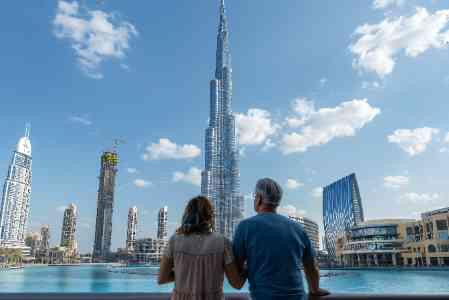
Dubai Real Estate Costs: Beyond the Listing Price
Introduction to Dubai Property Investment Costs
Investing in Dubai real estate is a popular choice for many, offering the promise of lucrative returns. However, the journey to property ownership involves more than just the price tag seen on a listing. A myriad of additional costs, encompassing government fees, agent commissions, mortgage expenses, and more, play a crucial role in determining the true cost of buying property in Dubai. Understanding these costs upfront is essential for buyers to accurately budget for their investment.
Government and Administrative Fees Explained
The Dubai Land Department and other governmental entities impose various fees on property transactions, significantly affecting the overall cost. These include:
- Land Registration Fees: Buyers are subject to a 4% fee of the purchase price.
- Deeds Registration Charges: Expect to pay AED 2,000 to 4,000 for registering the property under your name, depending on the property's value.
- Mortgage Registration Fees: A fee of 0.25% of the loan amount, along with additional processing fees, is charged for mortgage registration.
- Legal Documentation Fees: The cost for processing legal documents like title deeds starts at AED 500.
The Role of Agents and Brokers
Real estate agents and brokers facilitate the sale process, incurring further costs:
- Standard Real Estate Commission: Agents typically charge a 2% commission on the sale price, plus a 5% VAT.
- Conveyancing and Title Transfer Services: These legal services range from AED 5,000 to 10,000.
Mortgage-Related Expenses
Securing a mortgage comes with its own set of expenses:
- Bank Arrangement Fees: An arrangement fee of 1% of the mortgage value is common.
- Property Valuations: Required for mortgage approval, valuations cost between AED 2,500 and 3,500.
- Mortgage Life Insurance: This mandatory annual insurance costs 0.4-0.8% of the loan amount.

Community Costs and Utilities
After purchasing, homeowners are responsible for ongoing maintenance and utility costs:
- Annual Service Fees: These fees are charged quarterly for community upkeep, varying by square footage and community.
- DEWA Connection Deposits: A deposit of AED 2,000 to 4,000 is required for utility connections.
Upfront Expenses
Buyers should also be prepared for initial costs:
- Initial Down Payments: Generally, a 10% deposit of the property value is required.
- Supplementary Off-Plan Fees: Additional charges may apply for off-plan properties, including title deed charges.
Potential Hidden Costs
Several other expenses can arise unexpectedly:
- Property Insurance Premiums: Recommended coverage costs about AED 1,000 annually.
- ‘No Objection Certificate’ Fees: For mortgage clearance on resales, fees can reach up to AED 5,000.
The True Cost of Buying Property in Dubai
When all these expenses are accounted for, the total investment can exceed the initial listing price by 7-10%, catching many first-time buyers by surprise. To navigate the Dubai real estate market successfully, buyers must engage in thorough financial planning and consider all potential costs to ensure the affordability of their desired investment.
In summary, understanding every cost associated with buying property in Dubai is crucial for buyers aiming to make informed decisions and set realistic budgeting expectations. This comprehensive approach ensures a smoother transition into property ownership, with no financial surprises along the way.
Related Articles

Escrow Accounts in Dubai: How They Protect Your Real Estate Investment
Dubai has become one of the world’s most attractive destinations for real estate investors. With strong government regulations, clear processes, and transparent systems, property buyers often ask: Is real estate investment in Dubai safe? One of the key answers lies in the Escrow account system. This article explains what an Escrow account is, how it protects buyers, and why it plays a major role in reducing risk in Dubai’s property market.

Residence Permits in Dubai Through Real Estate Investment: Everything You Need to Know
Dubai continues to be one of the most attractive destinations globally for real-estate investment — not only because of its world-class infrastructure and tax-friendly environment, but also because foreign investors can secure residence permits via property ownership. This article outlines the two main investment-linked residence routes in Dubai, details their requirements, explains how each works and highlights recent regulatory enhancements from the UAE government.

Dubai 2040 Urban Master Plan: A Vision That Will Reshape Real Estate Markets
Dubai has long been synonymous with bold urban planning, iconic architecture, and aggressive growth. The unveiling of Dubai’s 2040 Urban Master Plan marks its latest leap into long-term thinking, combining sustainability, smart infrastructure, and population management into a two-decade roadmap. As real estate stakeholders—investors, developers, homebuyers—seek to align with future trends, the 2040 plan offers both opportunity and risk.
In this article, we’ll explore:
- What the Dubai 2040 plan broadly entails
- Key mechanisms by which it can influence real estate supply, demand, and pricing
- Projected effects on ROI across residential, commercial, and mixed-use sectors
- Strategic considerations and warnings for investors
- How to position yourself now to benefit
Comments (0)
You need to be logged in to comment